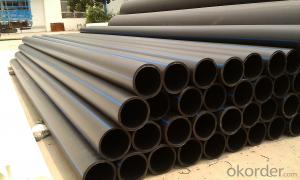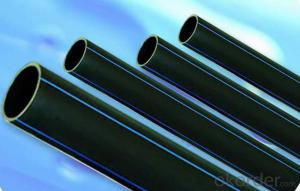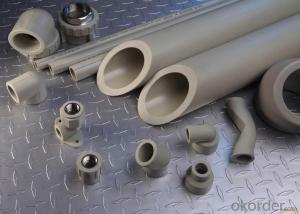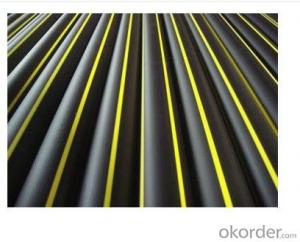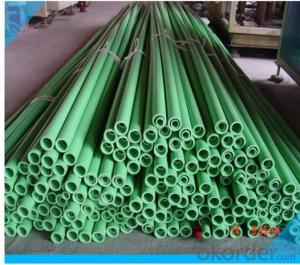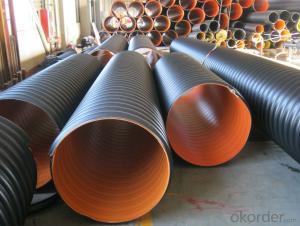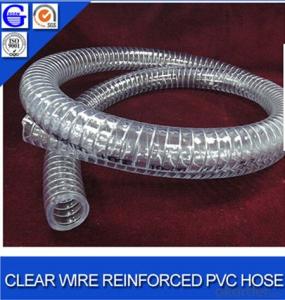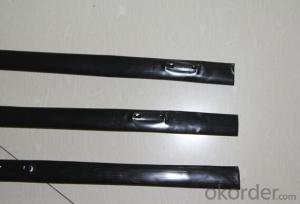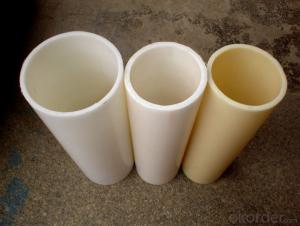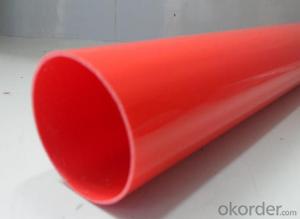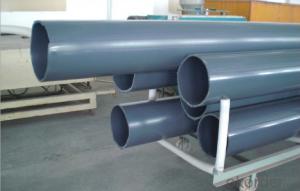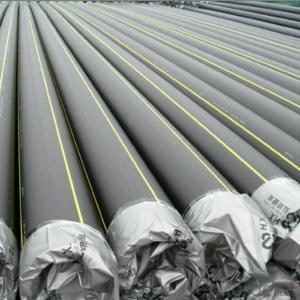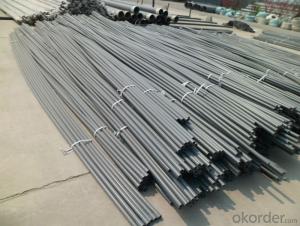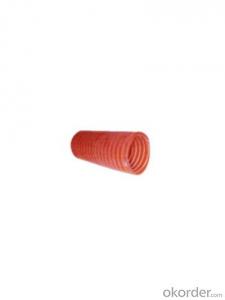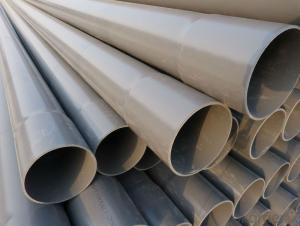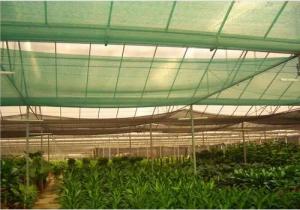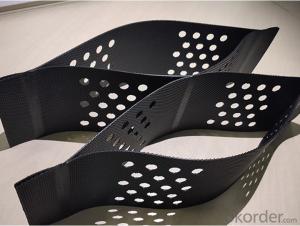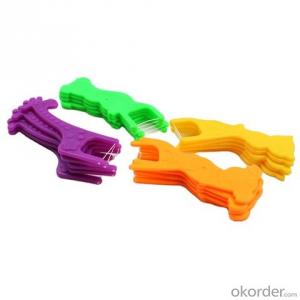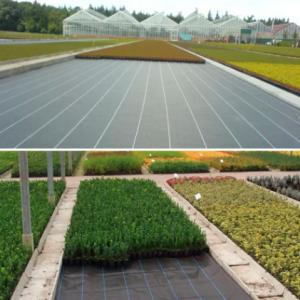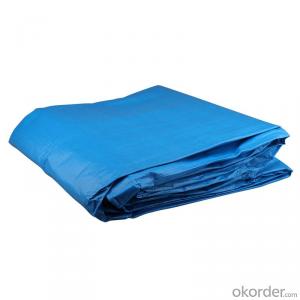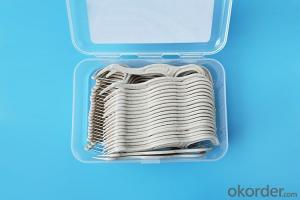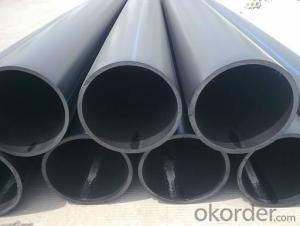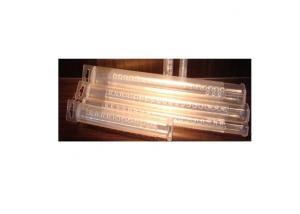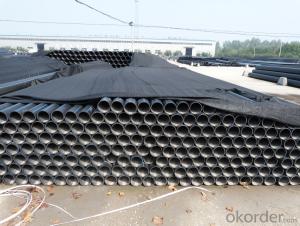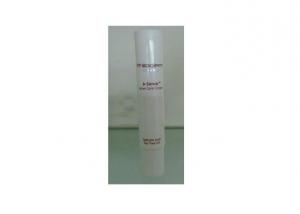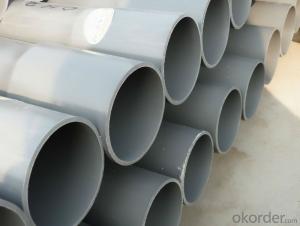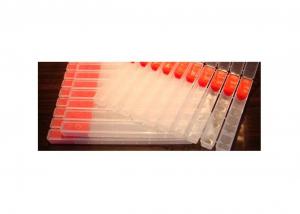HDPE PIPE ISO4427-2000 DN280
- Loading Port:
- China Main Port
- Payment Terms:
- TT OR LC
- Min Order Qty:
- -
- Supply Capability:
- -
OKorder Service Pledge
OKorder Financial Service
You Might Also Like
Physical properties[edit]
Polyethylene is a thermoplasticpolymer consisting of long hydrocarbon chains. Depending on the crystallinity and molecular weight, a melting point and glass transition may or may not be observable. The temperature at which these occur varies strongly with the type of polyethylene. For common commercial grades of medium- and high-density polyethylene the melting point is typically in the range 120 to 180 °C (248 to 356 °F). The melting point for average, commercial, low-density polyethylene is typically 105 to 115 °C (221 to 239 °F).it is transprant.
Chemical properties[edit]
Most LDPE, MDPE and HDPE grades have excellent chemical resistance, meaning that it is not attacked by strong acids or strong bases. It is also resistant to gentle oxidants and reducing agents. Polyethylene burns slowly with a blue flame having a yellow tip and gives off an odour of paraffin. The material continues burning on removal of the flame source and produces a drip.[3] Crystalline samples do not dissolve at room temperature. Polyethylene (other than cross-linked polyethylene) usually can be dissolved at elevated temperatures in aromatic hydrocarbons such as toluene or xylene, or in chlorinated solvents such as trichloroethane or trichlorobenzene.[4]
GB/T13663-2000:
| PE63管材规格 | |||||
| 公称 外径dn,mm | SDR33 | SDR26 | SDR17.6 | SDR13.6 | SDR11 |
| 公称压力 PN,Mpa | |||||
| 0.32 | 0.4 | 0.6 | 0.8 | 1.0 | |
| 公称 壁厚 | 公称 壁厚 | 公称 壁厚 | 公称 壁厚 | 公称 壁厚 | |
| 16 | 2.3 | ||||
| 20 | 2.3 | 2.3 | |||
| 25 | 2.3 | 2.3 | 2.3 | ||
| 32 | 2.3 | 2.4 | 2.9 | ||
| 40 | 2.3 | 2.3 | 3.0 | 3.7 | |
| 50 | 2.3 | 2.9 | 3.7 | 4.6 | |
| 63 | 2.3 | 2.5 | 3.6 | 4.7 | 5.8 |
| 75 | 2.3 | 2.9 | 4.3 | 5.6 | 6.8 |
| 90 | 2.8 | 3.5 | 5.1 | 6.7 | 8.2 |
| 110 | 3.4 | 4.2 | 6.3 | 8.1 | 10.0 |
| 125 | 3.9 | 4.8 | 7.1 | 9.2 | 11.4 |
| 140 | 4.3 | 5.4 | 8.0 | 10.3 | 12.7 |
| 160 | 4.9 | 6.2 | 9.1 | 11.8 | 14.6 |
| 180 | 5.5 | 6.9 | 10.2 | 13.3 | 16.4 |
| 200 | 6.2 | 7.7 | 11.4 | 14.7 | 18.2 |
| 225 | 6.9 | 8.6 | 12.8 | 16.6 | 20.5 |
| 250 | 7.7 | 9.6 | 14.2 | 18.4 | 22.7 |
| 280 | 8.6 | 10.7 | 15.9 | 20.6 | 25.4 |
| 315 | 9.7 | 12.1 | 17.9 | 23.2 | 28.6 |
| 355 | 10.9 | 13.6 | 20.1 | 26.1 | 32.2 |
| 400 | 12.3 | 15.3 | 22.7 | 29.4 | 36.3 |
| 450 | 13.8 | 17.2 | 25.5 | 33.1 | 40.9 |
| 500 | 15.3 | 19.1 | 28.3 | 36.8 | 45.4 |
| 560 | 17.2 | 21.4 | 31.7 | 41.2 | 50.8 |
| 630 | 19.3 | 24.1 | 35.7 | 46.3 | 57.2 |
- Q:theres a pvc pipe thats completely sealed in space like 10 meters long and its filled with air. Theres a tank inside the pipe filled with super compressed air. What would happen if the tank released all its compressed air in one direction and flew forward crashing into the front of the pvc pipe? Would the compressed air shooting out of a nozzle suddenly dissipate into the less dense air inside the tube or would it continue to the back of the tube and crash into it. Also when the air tank flew forward, and crashed into the front of the pvc pipe would it carry the pipe along with it, since it has so much more mass than the plastic piping?
- There is a general principle about internal forces that applies to situations like this and what it amounts is that the center of mass can never move. It's like that movie Gravity; in space, a stationary closed system can't make any net motion. If the cylinder shoots off in one direction the pipe will go in the other with equal momentum, and when it crashes into the end, both parts will reverse direction. And the two parts will bounce back and forth off each end until heat from the collisions dissipates all the energy.
- Q:i'm making a science fair project and its on Ferrofluid (or a liquid like magnet) and i'm trying to create a generator by placing the liquid in plastic tubing. but the problem (obviously) is that is i don't seal the two open ends of the tube the liquid will drain out. what can i use to block the tubing?Oh almost forgot, my substance is a magnet so it can't be any material that can possibly conduct electricity.
- Buy wood dowel the next size larger and cut a length and push it in. I would suggest E6000 or Goop rigid silicone adhesives, but check them on the plastic first.
- Q:Are plastic tubes resistant to abrasion or scratching?
- Plastic tubes, depending on the type of plastic used, can vary in their resistance to abrasion and scratching. Some plastics like polyethylene or PVC can have good resistance to abrasion, making them suitable for applications that involve contact with rough surfaces. However, other plastics may be more susceptible to scratching or abrasion, especially when exposed to sharp or abrasive objects. Therefore, it is important to consider the specific type of plastic used when determining its resistance to abrasion or scratching.
- Q:Can plastic tubes be printed on?
- Yes, plastic tubes can be printed on. Printing on plastic tubes is commonly done through methods like screen printing, pad printing, or digital printing. These techniques allow for the application of text, logos, or designs onto the surface of the plastic tube, making it customizable and suitable for various purposes.
- Q:What are the different types of connections available for plastic tubes?
- There are several types of connections available for plastic tubes, including compression fittings, barbed fittings, push-to-connect fittings, threaded fittings, and solvent-welded connections.
- Q:How can I make plastic pipes harden quickly?
- You say this kind of plastic pipe is PVC tube, it will harden in cold weather, and it will harden for a long time. Because of the hardening of the temperature, do not worry, the temperature will rise back, will return to normal, because this is the characteristics of PVC plastic. With a long hardening, this is the aging phenomenon, due to ultraviolet radiation and oxidation caused by irreversible reactions.
- Q:Can plastic tubes be used for chemical analysis?
- Yes, plastic tubes can be used for chemical analysis. They have various advantages such as being transparent, lightweight, and resistant to many chemicals. However, it is essential to ensure that the plastic material used is compatible with the specific chemicals being analyzed to avoid any reactions or contamination.
- Q:Can plastic tubes be used for insulation?
- Yes, plastic tubes can be used for insulation. They provide a protective covering and help to prevent heat transfer or loss.
- Q:Are plastic tubes resistant to radiation?
- Yes, plastic tubes are generally resistant to radiation.
- Q:How do I heat the thin plastic tube?
- Generally do not use thin plastic tube heating, if it must be heated, it must be heated water bath, to prevent the temperature is too high and burned containers.
1. Manufacturer Overview |
|
|---|---|
| Location | |
| Year Established | |
| Annual Output Value | |
| Main Markets | |
| Company Certifications | |
2. Manufacturer Certificates |
|
|---|---|
| a) Certification Name | |
| Range | |
| Reference | |
| Validity Period | |
3. Manufacturer Capability |
|
|---|---|
| a)Trade Capacity | |
| Nearest Port | |
| Export Percentage | |
| No.of Employees in Trade Department | |
| Language Spoken: | |
| b)Factory Information | |
| Factory Size: | |
| No. of Production Lines | |
| Contract Manufacturing | |
| Product Price Range | |
Send your message to us
HDPE PIPE ISO4427-2000 DN280
- Loading Port:
- China Main Port
- Payment Terms:
- TT OR LC
- Min Order Qty:
- -
- Supply Capability:
- -
OKorder Service Pledge
OKorder Financial Service
Similar products
New products
Hot products
Hot Searches
Related keywords
